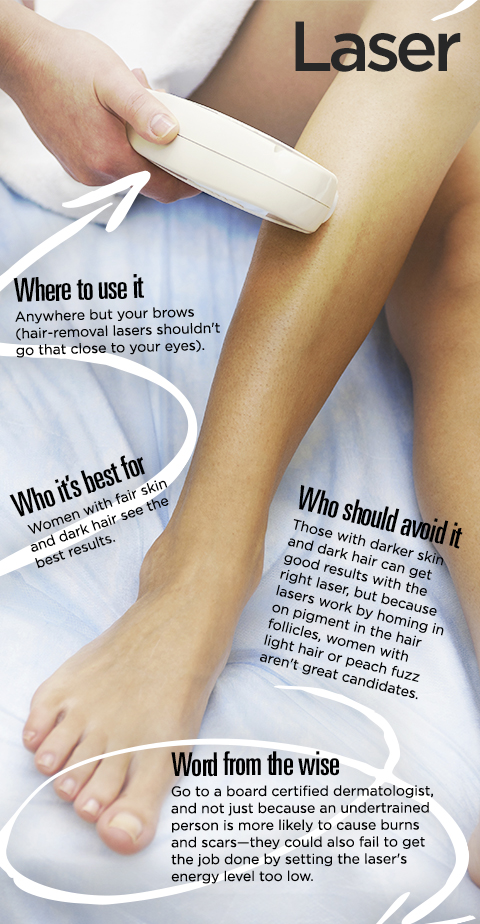Laser hair removal has become increasingly popular in recent years as a convenient and effective solution for those seeking a more permanent approach to hair removal. Whether you’re tired of constantly shaving, waxing, or plucking, this innovative procedure offers a long-lasting solution to unwanted hair. In this comprehensive laser hair removal guide, we will delve into the ins and outs of this procedure, discussing its benefits, process, and potential side effects. So, if you’re ready to ditch the razor and experience the freedom of silky-smooth skin, read on to discover everything you need to know about laser hair removal.
Understanding Laser Hair Removal
Laser hair removal is a popular technique for achieving long-lasting hair removal. It utilizes advanced laser technology to target and eliminate unwanted hair. This procedure has gained significant popularity in recent years due to its efficiency and effectiveness in providing a smooth, hair-free skin.
During laser hair removal, a concentrated beam of light is directed towards the hair follicles. The melanin, which gives hair its color, absorbs the light energy and converts it into heat. This heat damages the hair follicles, inhibiting their ability to regrow hair. The procedure is precise, targeting only the hair follicles while leaving the surrounding skin unharmed.
One of the key advantages of laser hair removal is its long-lasting results. Unlike temporary methods such as shaving or waxing, laser hair removal offers a more permanent solution. Multiple sessions may be required to target all the hair follicles in a specific area, as hair grows in different stages and some follicles may be dormant during the initial treatment.
Laser hair removal can be performed on various parts of the body, including the face, legs, underarms, bikini area, and back. It is important to note that results may vary depending on factors such as hair color, skin type, and the area being treated. To ensure the best outcome, it is recommended to consult with a qualified professional who can assess your individual needs and provide personalized guidance throughout the process.
By understanding the basics of laser hair removal, you can make an informed decision about whether it is the right hair removal method for you. In the following sections, we will delve deeper into the intricacies of the laser hair removal process and provide a comprehensive guide to help you navigate your way towards achieving smooth, hair-free skin.
Preparing for Laser Hair Removal
Consultation: Before undergoing laser hair removal, it is crucial to schedule a consultation with a reputable clinic or dermatologist specializing in this procedure. During the consultation, the practitioner will evaluate your skin and hair type, assess your specific needs, and determine whether you are an ideal candidate for laser hair removal. They will also explain the procedure in detail, answer any questions or concerns you may have, and provide you with recommendations for before and aftercare.

Shave the Treatment Areas: Prior to your laser hair removal session, it is important to shave the treatment areas. Shaving the hair ensures that the laser can directly target the hair follicles beneath the surface of the skin, maximizing the effectiveness of the treatment. However, avoid waxing, plucking, or any other hair removal methods that remove the hair from the root, as this may interfere with the laser’s ability to target the hair follicles effectively.
腳毛孔粗大Avoid Sun Exposure: It is highly recommended to avoid excessive sun exposure and tanning beds in the weeks leading up to your laser hair removal appointment. Sunburned or tanned skin can increase the risk of complications during the procedure, such as blistering or pigmentation changes. If you must be in the sun, make sure to apply a broad-spectrum sunscreen with a high SPF to the treatment areas.
Remember, proper preparation is essential to ensure the best possible results from your laser hair removal treatment. By following these guidelines and closely following any additional instructions provided by your practitioner, you can make your laser hair removal experience as smooth and successful as possible.
What to Expect During and After Laser Hair Removal
Laser hair removal is a popular method for achieving long-term hair reduction. If you are considering this procedure, it’s important to understand what to expect during and after the process.
During the laser hair removal treatment, a handheld device will be used to target and zap the hair follicles with concentrated beams of light. While the sensation may vary from person to person, some describe it as a mild stinging or tingling feeling. The procedure is generally well-tolerated and does not require anesthesia.
After the treatment, you may experience some temporary side effects. It is common to notice redness and slight swelling in the treated area, similar to a mild sunburn. This usually subsides within a few hours to a couple of days. It’s important to avoid exposing the treated area to direct sunlight and to apply a soothing moisturizer or prescribed ointment as recommended by your dermatologist.
Over the next few weeks, you can expect the treated hair to gradually fall out. It’s important to note that laser hair removal is not a one-time solution – multiple sessions are generally required to achieve optimal results. Each session targets hair in the active growth phase, and since not all hair follicles are active at the same time, several treatments are necessary to address all the hair.
By following the aftercare instructions provided by your dermatologist and attending the recommended number of sessions, you can expect to see a significant reduction in unwanted hair. Laser hair removal offers a long-lasting solution, saving you time and effort in the long run.
Remember, before opting for laser hair removal, it’s essential to consult with a qualified professional who can assess your suitability for the procedure and provide personalized advice based on your specific needs.

